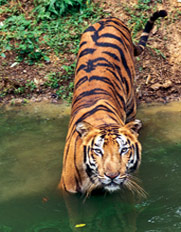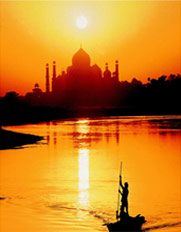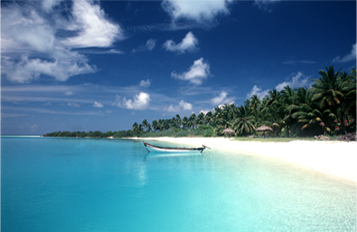 |
 |
 |
 |
Tribals of Rajasthan
Rajasthan according to the 2001 census has a population of 56.5 million. Rajasthan has a large indigenous populace Minas (Minawati) in Alwar, Jaipur, Bharatpur, and Dholpur areas. The Meo and the Banjara are travelling tradesmen and artisans. The Gadia Lohar is the Lohar meaning ironsmith who travels on Gadia meaning bullock carts; they generally make and repair agricultural and household implements.
The Bhils are one of the oldest peoples in India, inhabit the districts of Bhilwara, Chittaurgarh, Dungarpur, Banswara, Udaipur, and Sirohi and are famous for their skill in archery. The Grasia and nomadic Kathodi live in the Mewar region. Sahariyas are found in the Kota district, and the Rabaris of the Marwar region are cattle breeders.
The Oswals hail from Osiyan near Jodhpur are successful traders and are predominately Jains. While the Mahajan (the trading class) is subdivided into a large number of groups, some of these groups are Jain, while others are Hindu. In the north and west, the Jat and Gujar are among the largest agricultural communities. The Gujars who are Hindus dwell in eastern Rajasthan. The nomadic Rabari or Raika are divided in two groups the Marus who breed camels and Chalkias who breed sheep and goats.
The Muslims form less than 10% of the population and most of them are Sunnis. There is also a small but affluent community Shiaite Muslims known as Bhoras in southeastern Rajasthan.
The Rajputs though represent only a small proportion of the populace are the most influential section of the people in Rajasthan. They are proud of their martial reputation and of their ancestry.
Hinduism, the religion of most of the population, is generally practised through the worship of Brahma, Shiva, Shakti, Vishnu, and other gods and goddesses.Nathdwara is an important religious centre for the Vallabhacharya sect of Krishna followers. There are also followers of the Arya Samaj, a reforming sect of modern Hinduism, as well as other forms of that religion.
Jainism is also important; it has not been the religion of the rulers of Rajasthan but has followers among the trading class and the wealthy section of society. Mahavirji, Ranakpur, Dhulev, and Karera are the chief centres of Jain pilgrimage.
The Dadupanthi forms another important religious sect the followers of Dadu (d. 1603), who preached the equality of all men, strict vegetarianism, total abstinence from intoxicating liquor, and lifelong celibacy.
Islam, the religion of the State's second largest religious community, expanded in Rajasthan with the conquest of Ajmer by Muslim invaders in the late twelfth century. Khwajah Muin-ud-Din Chishti, the Muslim missionary, had his headquarters at Ajmer, and Muslim traders, craftsmen, and soldiers settled there. The State's population of Christians and Sikhs is small.

103, Shriram Bhawan, Ranjeet Nagar Commercial Complex
New Delhi 110 008.
Tel: 42030300, 25702737, Fax: 91-11-25702636
E-Mail: midtown@airtelmail.in, midtown@del2.vsnl.net.in
Travel Information || Festivals & Fairs || Shopping || Cuisine || Music & Dance || Art || Tourist Restricted Area || Passports and Visas || Weather || Rajasthan || Kerala || Taj Mahal || Wildlife || India Hotels || India Travel Guide || Honeymoon Tours

